There is a post that has been making the rounds on social media lately; I haven’t been able to get it out of my head since first reading it. It has been an itch I can’t scratch in my brain– a tag in the back of my shirt that I can’t ignore no matter how hard I try. A few friends of mine have shared it, but mostly it appears in mom-based Facebook groups and Instagram threads. It’s meant to inspire, change perspective, motivate, and break down mental barriers, but it has such a deep and concerning message to me.
“You can pour from an empty cup”
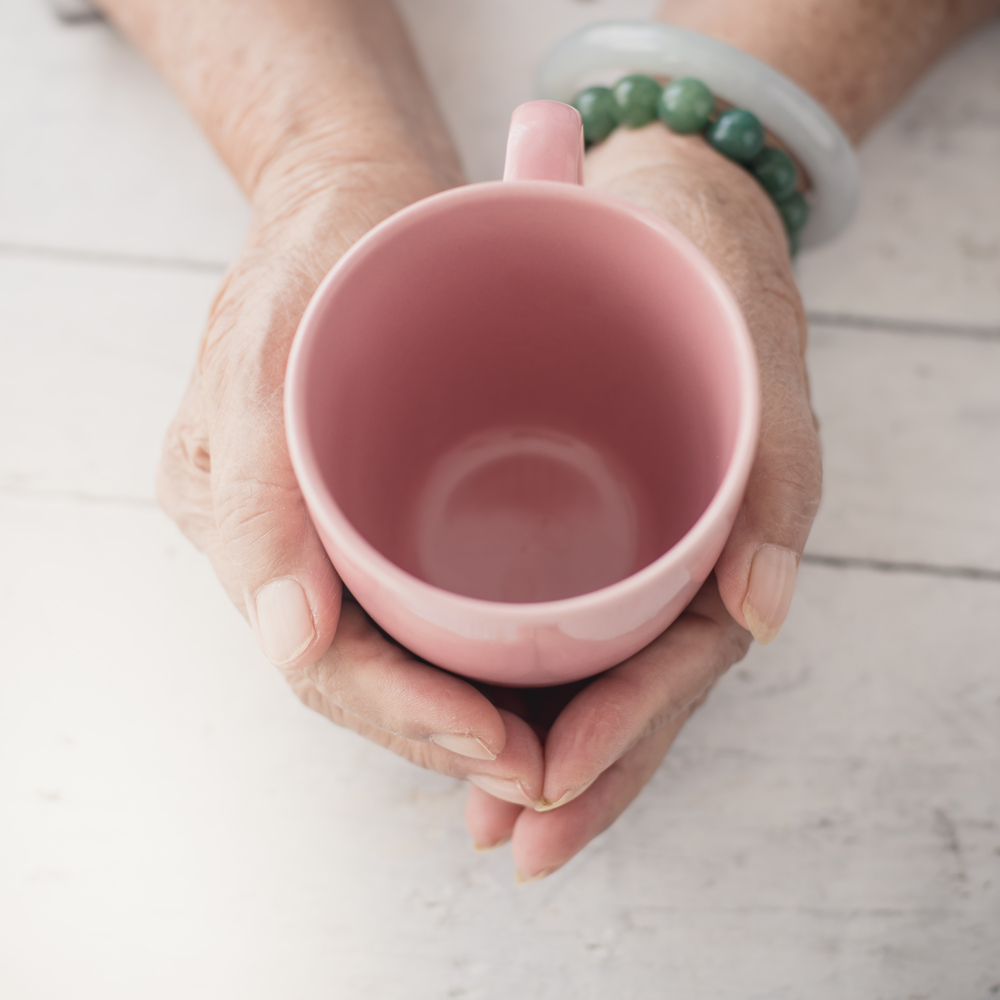
The author of the post, Bethany, outlines her issue with the “self-care for mommy” centric society we live in and claims not only can you pour from an empty cup, but you should. It is the destiny of the sacrificial, exhausted, serving mother to pour from an empty cup.

I understand her intention and position– of course there are times that parents have to parent when they don’t feel like it. Of course there are times when an exhausted, sleep-deprived, stressed parent would much rather be alone on a beach in Bermuda than putting together a 3rd grade science experiment at 11:30 PM the night before it’s due (I’m sorry mom for all of those late nights!). We have to do hard things as parents. We have to do hard things as humans. Nobody is disputing that.
it’s important for our children to know, as they grow and as developmentally appropriate, that they are not the sole source of our happiness and self-worth.
There are times parenting and caretaking will come as easily as breathing– effortless, natural, and perfect synchrony in every beautiful moment. Other times, parenting will feel like trying to breathe underwater– full of resistance, struggle, gasping, and wondering how close to defeat you may be. Regardless of the way your parenting feels in any given moment, above water or submerged, the messaging that “Mothers are destined to pour from empty cups and it’s selfish to think your cup needs to be full” is shame-based and full of martyrdom.
I would like to offer a different perspective for those who agree that it is selfish to engage in ‘mom self-care.’ For those that think that prioritizing filling your cup is self-serving and unrealistic. For those who think that taking time for yourself and exploring your own interests and hobbies as a person separate from your parent role is selfish. For those who believe that focusing on your own growth and development, getting breaks from your children, and taking the time to explore and enrich your own inner world are unnecessary and not what we were called to do as mothers.
In her post, the Facebook author writes, “My cup ALWAYS feels empty, and yet I am somehow ALWAYS pouring from it.” If you have chosen to believe that you will always pour from an empty cup as a mother, you have decided that your children and their needs are your entire world. Your be-all end-all. Your barometer for how the day (and your life) is going to unfold and ultimately how happy you will be. Your fulfillment as a human and a parent will be dictated by how happy they are, how much they succeed, and how they operate within the world. And if a child is their parent’s whole entire world, what then? How does that benefit the child to know that their decisions, comings and goings, attitudes, and behaviors are going to so heavily impact the well-being of their parents? It is unnecessary and unfair pressure we put on them. Of course our children’s successes, failures, and behaviors will affect us as parents, but I think it’s also important for our children to know, as they grow and as developmentally appropriate, that they are not the sole source of our happiness and self-worth.

You can pour from an empty cup, Facebook author, but why would you want to?
I want my daughter to know every single day that she is deeply and unconditionally loved and one of the absolute best parts of my life, whether she is having a good day or a bad day. I want her to know that I can parent and care for her with every ounce of love and energy I have in my body not because she is my whole world, but because I am also a complete person existing in this world who honors my own needs and desires. And when I do that, I can then meet her needs better. I want her to know that sometimes she fills my cup to the brim, sometimes she overflows it by doing nothing except being exactly herself. I also want her to know that sometimes, other people and things fill my cup. Sometimes it’s her dad, sometimes it’s being in nature with my friends. Sometimes it’s spending a few hours alone and writing, reading, or watching my favorite TV shows. Sometimes it’s listening to my own podcast while she listens to her music. This, too, is self-care.
I want her to know this about me so that she will also know the importance of filling her own cup, and how it feels to pour (i.e. give to others) from an empty vs full cup. You can pour from an empty cup, Facebook author, but why would you want to? It is unfair to our children if we decide that they are primarily the reason our cups are empty, yet we must continue to pour from that empty cup to satisfy them. They didn’t ask for that. Their job as children is to beg, scream, cry, demand, break, test, and try. Our job, as their parents, is to love, teach, empower, accept, mentor, coach, validate, soothe, and foster.
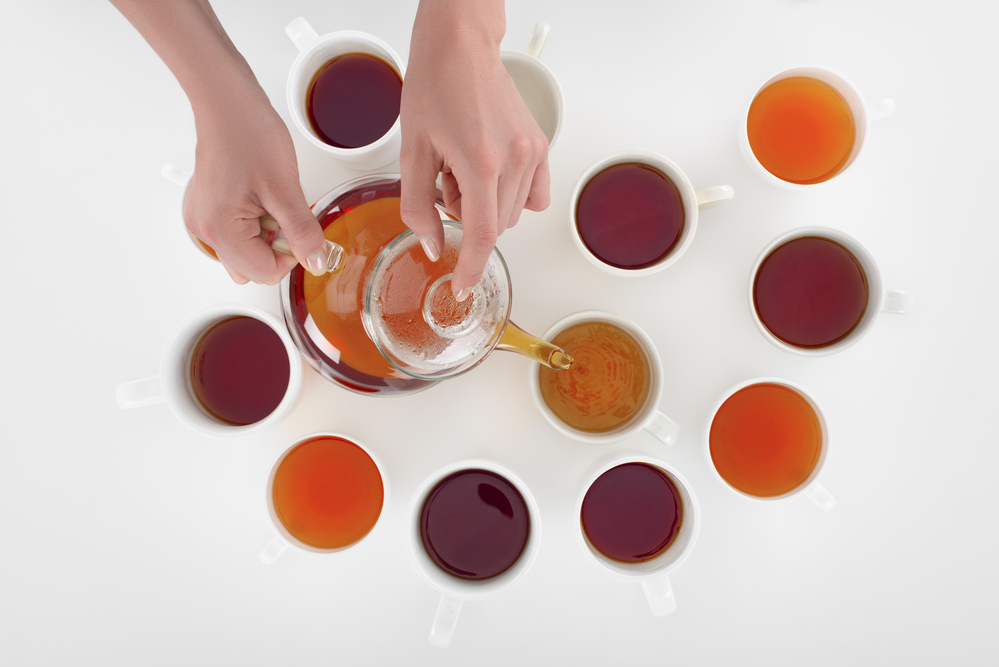
The Facebook author writes, “Kids don’t care how much liquid is in your cup.” To that I say, teach them! Teach them to care about your cup, their cup, the cups of strangers. Teach them that the more caring we are of cups, the more authentically we can love and show up for each other. It is respectful and loving to care about how much liquid (i.e. energy, stamina, joy, well-being) is in our own cups and the cups of those we love. If we don’t think it’s important to teach our children that our needs as a parent and person matter, we are incidentally teaching our children that someday, their cups won’t matter either. We are teaching them how to be a martyr. That their life, wellbeing, and happiness is dictated by others and they don’t have a say in the matter. I would also like to pose that our children know when we are parenting them from a place of obligation and emptiness vs overflowing joy and fullness. They may not have the verbiage to express that they know, they may not even consciously know that they know. But, they know. If you have your own children or have worked with children in any capacity, you know that kids sometimes have that spooky, sixth-sense awareness about things.
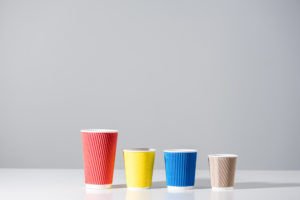
So, what does it mean to teach a child how to care about the liquid in mom’s cup?
It will look different based on the family circumstances and age of the children, but it can sound like this:
I know you want to go to the pool, but I am feeling extra tired today. Let’s pick an activity to do at home, you can choose what we do! I know this upsets you and it’s okay to feel sad and angry with me, I understand. But I am not able to take us to the pool today.
I understand that you are upset you can’t go on this hike with me. I love hiking with you, too! Sometimes I like to do things by myself because it lets me do a lot of thinking and helps me to feel calm. It doesn’t mean I don’t love you or like spending time with you. Sometimes you like to play alone, too, remember?
I’m going to let the baby cry for 10 minutes in her crib because I know she is safe. I need to take the time to finish my shower, brush my teeth, and get dressed

Filling your own cup doesn’t have to mean mommy needs 4 hours to do yoga and drink bottomless mimosas (but it can if that sounds fun to you!). Filling your own cup is sometimes as simple as checking in with yourself, asking what you need, honoring those needs, and recognizing which activities help you to parent from a more loving, joyful, and authentic place.
Having a full cup isn’t about spending 10 hours per day obsessively thinking about yourself and how you can keep filling it. It’s about recognizing that you even have a cup. It’s about recognizing that your cup is important, it’s your responsibility to fill it, and it is absolutely worthy of being filled. It’s about noticing the difference in your parenting when you are pouring from a full vs empty cup, and then deciding which is your goal. Paying attention to your cup means you notice which things drain your cup and which things fill it. It means that sometimes we have to do the things that drain our cups, but we also know how to practice self-care so that we can refill it afterwards. Being aware of our cups means that if we suddenly recognize that we aren’t sure how to fill our cups, nothing seems to fill it, and it always feels empty, it’s time to reach out to our friends, family, or professionals in the community to get help. In my opinion, someone who proudly exclaims, “I always have an empty cup and this is how I’m called to live” is in desperate need of help whether they realize it or not
Authentic love, honesty, and deep connection with our partners and children looks like, “Let me show you my empty cup today. How can I show up for you in a way that doesn’t further deplete this cup?” It is not “Look how much I can pour from my empty cup…isn’t that impressive?”
When I’m doing a good job making sure my cup is full, I parent from a place of compassion, patience, validation, and understanding
I have found that the more space I create for myself and my needs, whether it’s in the form of therapy, exercise, reading books that interest me, traveling with my partner, setting loving boundaries with my child, saying “no” when I want to, or taking intentional time away from my child, the better I parent. When I’m doing a good job making sure my cup is full, I parent from a place of compassion, patience, validation, and understanding. I parent my daughter more in line with my values when I am living by those values myself– one of which is caring for my physical, mental, emotional, and spiritual well-being. I have recognized that when I am pouring from an empty cup, it looks like my daughter playing with her toys while I scroll my phone. I am exhausted and disengaged. When I am pouring from a full cup, it looks like effortless play, giggle-fits, and jumping in the sprinklers with our clothes on. When I am pouring from an empty cup, I hastily put the kid in bed 10 minutes early and calculate how many kid-free hours I have before she wakes up. When I am pouring from a full cup, we are playing on her bedroom floor for hours until suddenly I realize, “Oh my gosh, it’s 2 hours past your bedtime!”

You may not know how to fill your own cup; that’s okay and is normal. Especially in a society where sometimes the mother martyr reigns. In the early stages of learning how to reconnect with and honor my needs and desires (i.e. how to fill my own cup and practice self-care), I had to make a list of things I enjoyed in my phone. It felt silly and a little embarrassing– had I lost so much of myself that I had to literally write down, “Sit outside at the coffee shop with a book” and “Get a McDonald’s tea and drive through the country while listening to 90’s pop hits”? Yes, and that’s okay. You have to start where you are. As time went on and making space for self-care became more habitual, I no longer had to consult my list. The same way I learned to love and care for my daughter when she was a newborn, I learned to love and care for myself as I grew into the person and mother I knew I could be. The mother that wants to teach my daughter how to care for herself as she grows not only by my words, but by my actions.
You can pour from an empty cup. Some days and moments it is necessary. But try to keep the mindset that it is the exception and not the rule. If you find you are operating from an empty place more often than not, it’s worth considering why that is. If you think you are destined to pour from an empty cup, your cup will always be empty. If you are relying on others to fill your cup because you think it is self-indulgent to do the things that fill your own cup, you will have it filled every now and then, sure. But it will be filled up with something that is not exactly what you wanted. It will be fine, but it won’t be great. It will be a latte when you wanted a black coffee. It will be a lemonade when you were hoping for milk. It will be partially filled by others, but only you know how to fill your cup in the way that is most meaningful and satisfying and allows you to operate from a healthier, happier, fuller version of yourself.
When my someday adult daughter reflects on her childhood, I want her to feel like she had an amazing, loving, safe, creative, and spontaneous childhood not because I sacrificed everything about myself on her behalf, but because I created a space for me, for her, and for us to live honestly, authentically, and joyfully. I want her to know that when I did sacrifice for her, which was often, it was with great pleasure because I also spent time honoring and meeting my own needs. There were no strings attached and no underlying annoyances, it was serving with ease and with joy.
Someday, I want my adult daughter to hear my stories and read my words and know that she is also worthy of parenting and existing in a way that isn’t solely sacrificial. This is one of the great joys of being a parent, yes, but it is not the only part of being a parent.
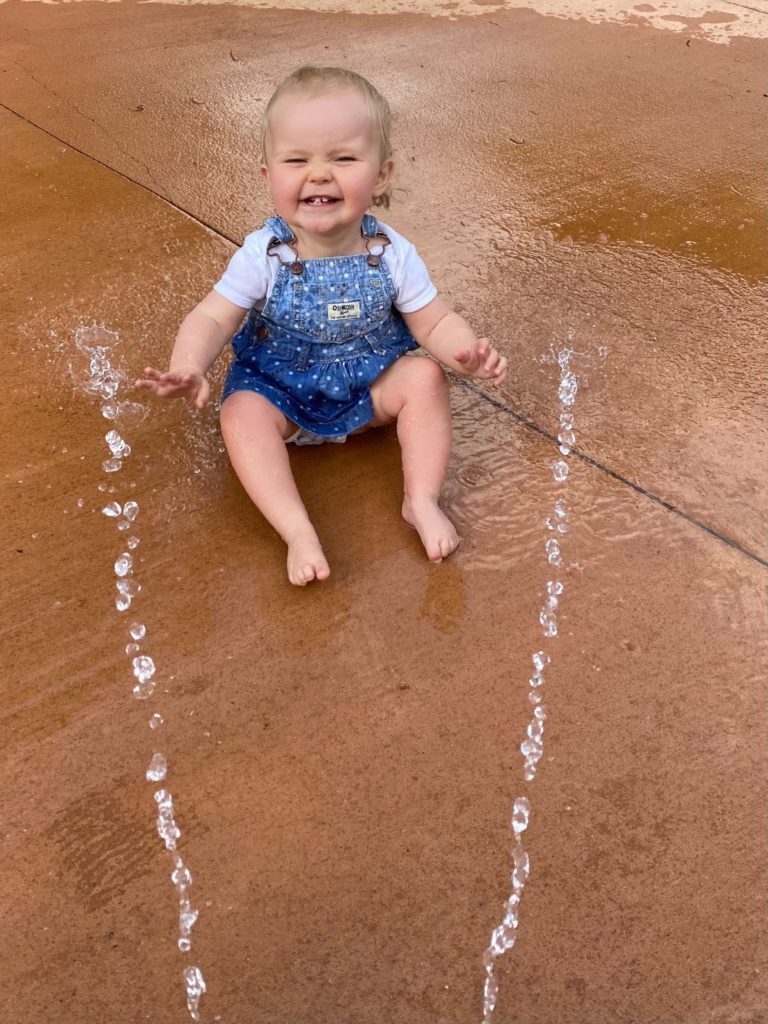
If my greatest responsibility as a parent is to foster my daughter’s development and growth throughout all of the stages of her life, why would I abandon doing that for myself? Is there an expiration date I need to warn my daughter about– a day when she should suddenly stop caring about her own needs and stop trying to explore the world in the way that she desires? I don’t believe so. And by denying that for myself, I am admitting that there is an expiration date for my own development, needs, growth, and desires.
My cup matters, and so does yours. Let’s teach our children how to honor, respect, and care about the cups.
Courtney Perry lives in Winston Salem, NC with her husband, daughter, and dog. She works at Family Services and loves serving parents, families, and youth in the community. Courtney enjoys listening to audiobooks, podcasts, writing, photography, and volunteering with her therapy dog. Courtney writes on her personal blog (www.theothercourtney.com) and has also been a contributor to The Huffington Post.
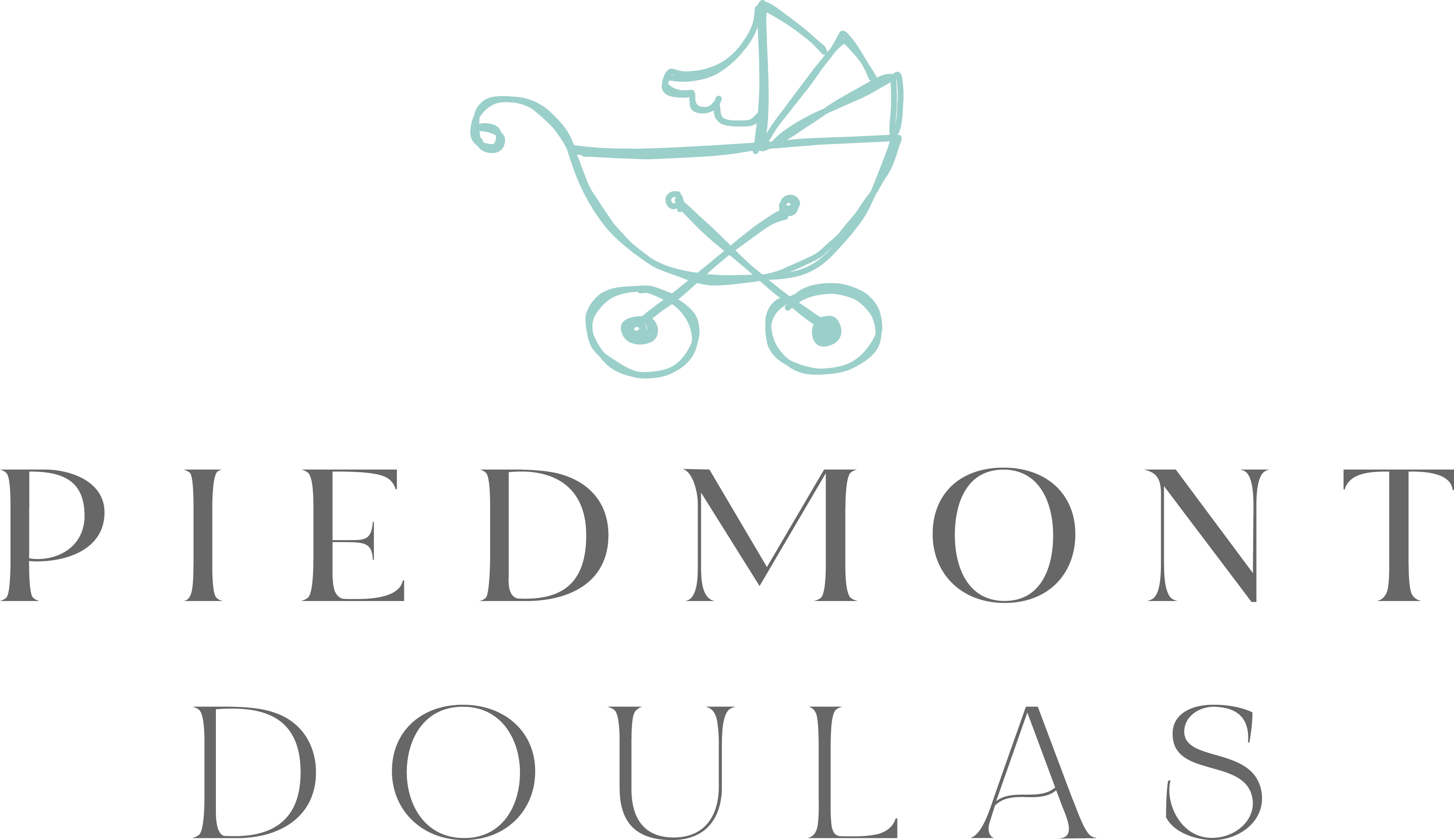
Recent Comments